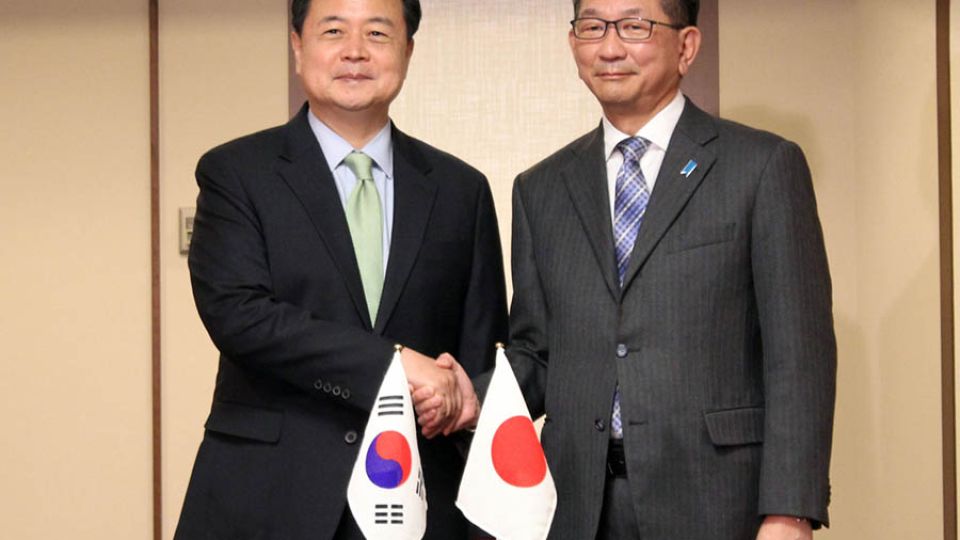October 28, 2022
SEOUL – Seoul is reportedly seeking donations from Japanese firms as one of the solutions to the wartime forced labor issue.
According to Asahi Shimbun on Wednesday, South Korea is solely reviewing the plan in which the Foundation for Victims of Forced Mobilization by Imperial Japan, a state-operated entity, collects donations from both Korean and Japanese companies to pay damages to Korean victims who were forced into labor during Japan’s 1910-1945 occupation of the Korean Peninsula.
“The South Korean government initially reviewed the plan to provide the compensation on behalf (of the Japanese companies). But after considering the plan is highly likely to face strong public opposition, it is now thinking of having the Foundation for Victims of Forced Mobilization by Imperial Japan collect donations to pay the damages,” the media quoted a Korean ministry official.
Seoul’s Foreign Ministry, however, maintains that “nothing has been decided” on the matter.
“The two countries have not decided on one solution. Nothing has been decided on the solution to the forced labor issue,” Lim Soo-suk said in a regular press briefing on Thursday.
Seoul’s First Vice Foreign Minister Cho Hyun-dong also had said, “There are a lot of speculative articles (over the solution to the wartime forced labor issue) but the governments have not made a decision, nor set a deadline (for resolution),” after a trilateral meeting with his American and Japanese counterparts in Tokyo on Wednesday.
South Korea and Japan largely seem to have agreed on having a third party entity provide the compensation, which South Korea’s top court recommended when it ordered two Japanese firms to pay victims in 2018. But the Japanese firms have refused to accept the liability, stating their government’s position is that all claims stemming from the colonial period were “settled completely and finally” under a 1965 bilateral agreement.
The Korean victims, plaintiffs in the suit, have demanded that the Japanese companies, Nippon Steel and Mitsubishi Heavy Industries, follow the court’s order and also deliver sincere apologies.
While in Japan for the meeting, Cho also held a bilateral meeting with his Japanese counterpart Takeo Mori.
In the meeting that lasted for 90 minutes, Cho talked “in-depth” on the possible solutions to the forced labor issue, according to Seoul’s Foreign Ministry.
The issue, which stands as a major sticking point between Korea and Japan, will likely be on the table for leaders of the neighboring countries when they meet in the series of multilateral summits slated to take place in November, including the G-20 summit and ASEAN summit.
The Foundation for Victims of Forced Mobilization by Imperial Japan was established in June 2014 as an affiliate organization of Korea’s Ministry of the Interior and Safety, in pursuant to the Special Act for the Investigation of Forced Mobilization during the Opposition to Japan and Support for the Victims of Overseas Forced Mobilization.
The organization runs various projects, including welfare support and commemorating the victims, casualties, and surviving families of the forced mobilization by Japan, according to the foundation.


